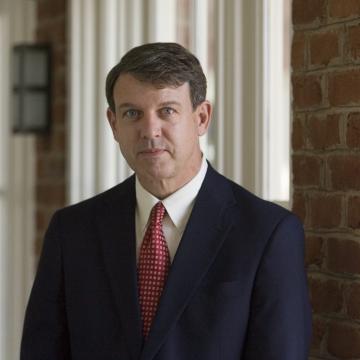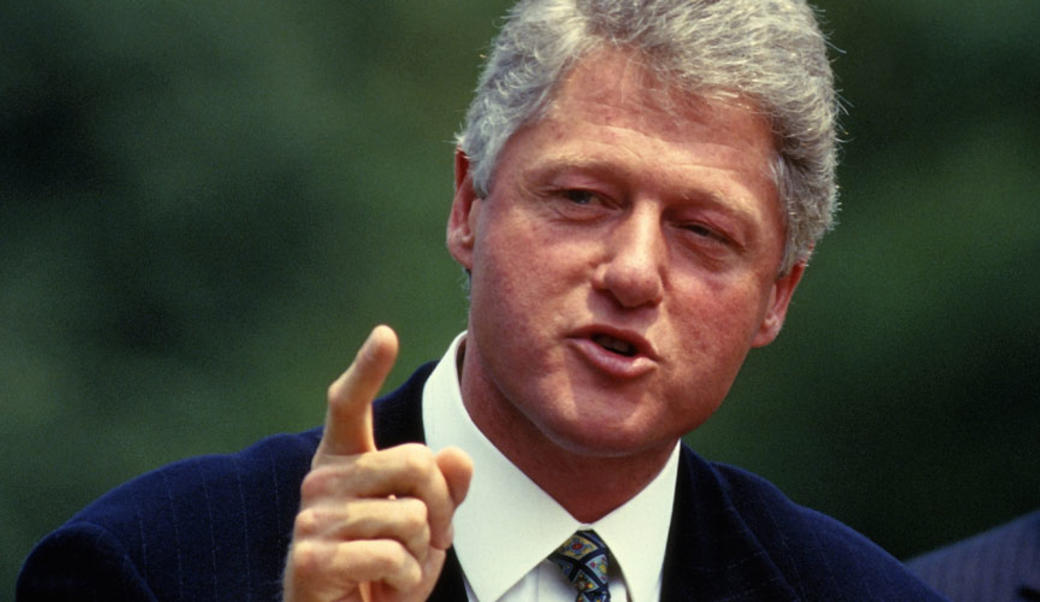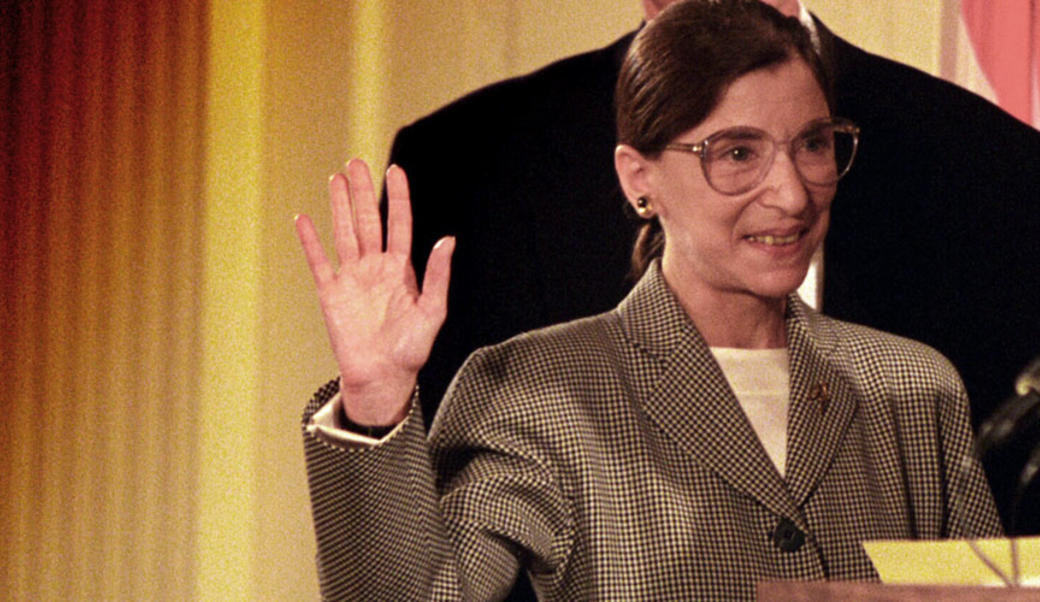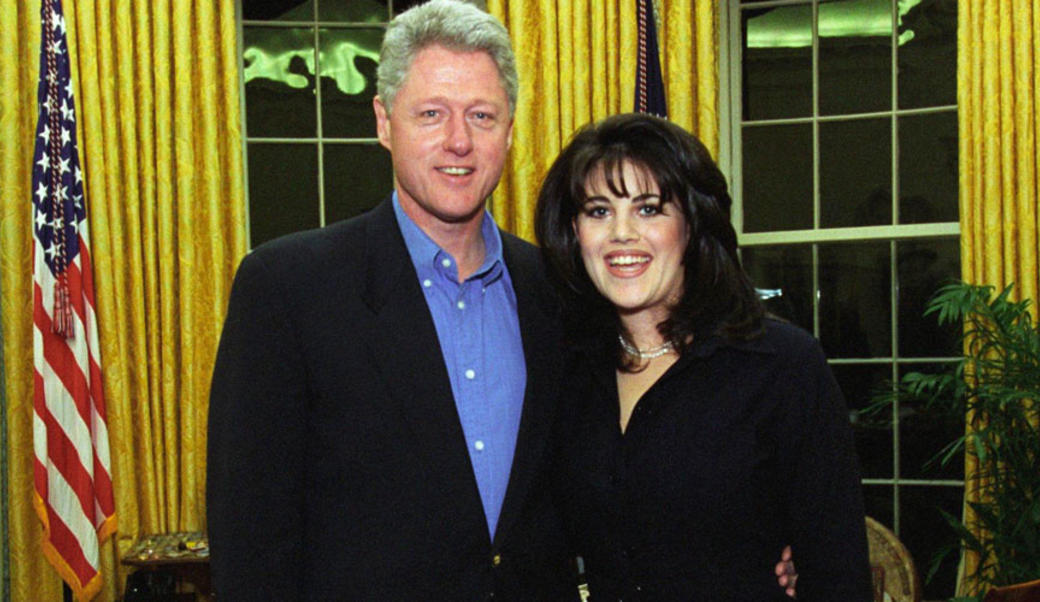Bill Clinton: Life Before the Presidency
William Jefferson Clinton spent the first six years of his life in Hope, Arkansas, where he was born on August 19, 1946. His father, William Jefferson Blythe, had died in an auto accident several months before his mother, Virginia Cassidy Blythe, gave birth to the future President. Raised in the home of his grandmother, Edith Cassidy, Bill's early years were dominated by two strong women, who often competed for his attention. His mother, a vivacious and fun-loving free spirit, was often away from home taking nursing classes in New Orleans. It was during those periods that his grandmother, a temperamental and strong-willed disciplinarian, tried to shape her grandson's character—and taught him to be a very early reader. Bill later remembered loving both women during that time of his life but feeling torn between them as a young mediator of their arguments.
In 1950, Bill's mother married Roger Clinton, a car dealer and abusive alcoholic. The family moved to Hot Springs, Arkansas, a bustling resort town an hour away. (She later divorced Roger Clinton when Bill was fifteen, only to remarry him quickly thereafter.) Again, Clinton had to intervene between two adults engaged in violent arguments. As a teenager, Bill excelled in school and showed a passion for politics. He played saxophone in a high school band and especially loved the gospel music of his Baptist faith. The fun of gambling dens and mineral spas competed for Bill's attention with Baptist churches and politics. But while his mother went to the racetracks on Sunday, Bill attended church, principally to hear the music he loved. In this small community, Bill was widely recognized as a young man of rare talent and ambition.
An Education for Leadership
Hot Springs High School, although a segregated all-white school, stood heads above most public schools in Arkansas. School Principal Johnnie Mae Mackey—another strong woman in Clinton's life—recruited staff committed to producing leaders who thought of personal success in terms of public service. Clinton became her brightest protégé. It was under her mentoring that Clinton was sent to Washington, D.C., as one of two Arkansas delegates to Boy's Nation, an imitation political convention sponsored by the American Legion. While there, the seventeen-year-old Clinton was captured in a historic photograph shaking hands with his political idol, President John F. Kennedy, in the White House Rose Garden. That July 1963 handshake later symbolized the continuity between the Kennedy 1960s and the Clinton 1990s. Ever since he was child, Clinton's mother had told him that he would some day be President of the United States. The Kennedy handshake left Clinton determined to fulfill her prediction. (Virginia Clinton lived to see her son become President, dying in 1994 of cancer.)
Upon graduation from high school in 1964, Clinton left Little Rock to attend Georgetown University in Washington, D.C. An international affairs major, he managed to cover his expenses through scholarships and by working part-time jobs. At this Catholic-sponsored, well-heeled institution, the student body clearly looked upon Clinton as an outsider from backwoods Arkansas. Although a clique of students running the newspaper discouraged Clinton's efforts to contribute to the school, his energy, dashing good looks, and personal charm pushed him to the top in student government. He won the presidency of his freshman and sophomore classes. In his junior year, Clinton ran for president of the student council, but lost in a stunning defeat. In attempting to please everybody, Clinton had miscalculated. He looked too political to his peers, and they elected his lesser-known opponent.
Rhodes Scholar and Vietnam Draftee
Beginning in his junior year, Clinton worked as a clerk for the U.S. Senate Foreign Relations Committee. At that time, the powerful committee was headed by Senator J. William Fulbright of Arkansas, a leading critic of U.S. involvement in the Vietnam War. The experience greatly shaped Clinton's perspective as he came to believe, as did Fulbright, that the United States had no moral or strategic reason for being in Vietnam. Just prior to his graduation from Georgetown, he won a prized Rhodes scholarship to study at Oxford University in England for two years. However, he faced being drafted for the Vietnam War due to a change in federal policy that eliminated almost all college deferments. His local draft board in Arkansas, however, allowed him to sail for England.
While in England, Clinton received his draft notice. He then returned to Arkansas, and with the help of Fulbright's office and that of Governor Winthrop Rockefeller, managed to persuade the admissions staff of the Reserve Officers' Training Corp (ROTC) program at the University of Arkansas Law School to accept him the next fall. Instead he returned to Oxford, although the evidence is unclear as to whether this was done with the approval of his ROTC contacts. Back in England, Clinton evidently remained conflicted about his decision to avoid the draft, torn between his moral convictions that the war was wrong and his sense of kinship with former classmates who were serving and dying in Vietnam. In the fall of 1969, he chose to re-subject himself to the draft—doing so, however, at a time when Nixon administration policy seemed to suggest that future call-ups of combat troops would significantly decline. In any event, Clinton's luck held when his birth date in the lottery drew the high number of 311, distant enough to ensure that he would never be called. Clinton then wrote a letter to the director of the Arkansas ROTC program thanking him for "saving" him from the draft, explaining that he still loved his country while nevertheless despising the war. In England, Clinton participated in numerous antiwar demonstrations, and both his antiwar activities and his ROTC letter resurfaced years later during his bid for the presidency in 1992. Although Clinton remained in the Rhodes Scholar program, making many contacts with students who would later become part of his administration, his Oxford coursework never added up to a degree.
Law, Politics, and Marriage
In 1970, Clinton entered Yale Law School, earning his degree in 1973 and meeting his future wife, Hillary Rodham, whom he married in 1975. During this period he also worked on the 1970 U.S. Senate campaign of Joe Duffy in Connecticut, and toward the end of his studies he managed the Texas campaign of the Democratic presidential nominee George McGovern (who lost Texas in the Nixon landslide). After graduation, Clinton moved back to Arkansas with a job teaching law at the University of Arkansas in Fayetteville. Almost as soon as he arrived home, Clinton threw himself into politics, running for a seat in the U.S. House of Representatives against incumbent Republican John Paul Hammerschmidt. Although Clinton lost this 1974 race, it was the closest election for Hammerschmidt in his twenty-six years in Congress, marking Clinton as a rising political star.
Two years later, Arkansas voters elected Clinton state attorney general. Then in 1978, at age thirty-two, Clinton ran for governor, winning an easy victory and becoming one of the nation's youngest governors ever. However, his youth and inexperience quickly left Arkansans unimpressed. Governor Clinton had several missteps, including difficulties in handling rioting among Cuban refugees temporarily interned by the federal government at Fort Chaffee, Arkansas. He also raised auto license fees to pay for road construction and alienated the state's powerful timber interests by an unsuccessful intervention in the controversy over the practice of clear-cutting. Consequently, the voters turned him out in favor of Frank White, a little known, freshly minted Republican savings and loan executive. Clinton became the youngest former governor in American history.
Shocked by his defeat, Clinton went to work for a Little Rock law firm but spent most of his time campaigning for reelection. In the 1982 race, Clinton admitted his mistakes and used his incredible charm and well-honed TV ads to convince the voters to give him another chance. He won in 1982 and again in 1984. Voters then supported him for two, four-year terms in 1986 and 1990.
As governor, Clinton championed centrist issues. He strongly advocated educational reform, appointing Hillary Clinton to lead a committee to draft higher standards for Arkansas schools. One of the administration's proposals called for competence tests for all teachers, a policy development that stirred up a national debate. Governor Clinton's sweeping education reforms positively impacted Arkansas schools, which experienced a decrease in dropout rates and an increase in college-entrance exam test scores under his watch, although the state's overall rankings moved very little. During Clinton's tenure as governor of Arkansas, he favored capital punishment. He promoted welfare reforms aimed at pushing welfare recipients into the workforce and moved decisively to promote affirmative action—appointing more African Americans to state boards, commissions, and agency posts than all of his predecessors combined. Additionally, he initiated a style of government that resembled a permanent election campaign. Using the talents of the political consultant Dick Morris, Clinton pushed legislative agendas based upon public opinion polls. The governor and his strategist then built support for their policies through well-orchestrated sales campaigns that used television, leaflets, and telephone banks to pressure state lawmakers.
Creating a National Image
Setting his sights higher, Clinton used his five terms as Arkansas governor to cultivate a national profile for himself. He soon emerged as one of the leading reform governors in the Democratic Party. In 1986 and 1987, Clinton served as chairman of the National Governors Association, speaking on behalf of the nation's governors. Shrewdly charting a new course, Clinton helped guide the Democratic Leadership Council, a group of moderate Democrats and business people who worked to affect national policies. In 1990 and 1991, Governor Clinton led the council's drive to lure back the white male vote into party columns without alienating blacks and women. With the goal of strengthening and unifying the party, Clinton used his persuasive oratorical skills to argue that the Republicans were using the issue of race to gain political advantages, and that race should not divide Americans who agreed on economic and other social issues.
He insisted on pragmatism and moderation in government programs, a centrist platform that emphasized opportunity, jobs, law and order, and responsibility. This meant that the government should provide opportunities for all citizens when the free market failed, but individuals had to accept the responsibility to work and to contribute to the common civil order. This linking of the time-honored American enshrinement of work and individualism to a progressive view of the role of government became for Clinton a "New Covenant"—the philosophical perspective behind his reference to himself as a "New Democrat."
In 1988, however, Clinton damaged his chances for higher office. He was picked to give one of the nominating speeches for Michael Dukakis at the Democratic National Convention. He delivered a long, boring speech emphasizing policy and programs that many thought would doom his chances to run for President. A quickly arranged appearance on the "Tonight Show" with Johnny Carson enabled Clinton to poke fun at his blunder and thus deftly rescue his image before a large national television audience.




